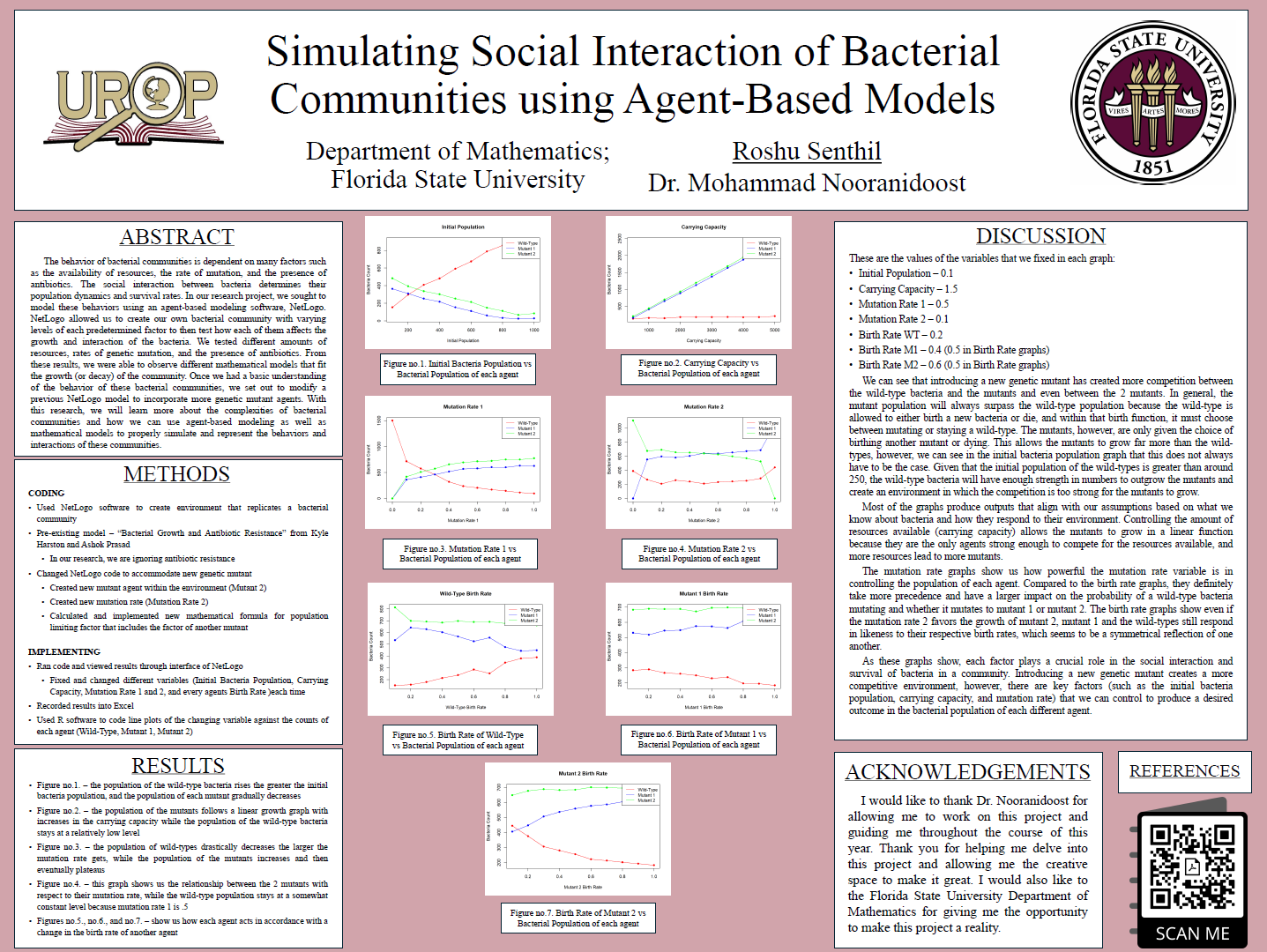Research Symposium
24th annual Undergraduate Research Symposium, April 3, 2024
Roshu Senthil Poster Session 4: 2:45 pm - 3:45 pm /100
BIO
Hi! My name is Roshu Senthil, and I am currently a second-year Statistics major here at FSU. Originally from Papillion, Nebraska, I now reside in Tampa, Florida, having moved here two years ago. Currently, I am actively involved in the FSU Honors Program, the Florida Beta Chapter of Pi Mu Epsilon, and I work part-time as a Data Entry Specialist for a traffic counts company.
In the future, I aspire to work as a Data Analyst for AWS, as the field of data science has always fascinated me. I enjoy learning and working with various programming languages to synthesize and analyze data. This research project particularly caught my interest due to its intersection between biology, mathematical modeling, and programming. I hope to further enhance the skills gained through this research project in my career, and I eagerly anticipate future developments in this area!
Simulating Social Interaction of Bacterial Communities using Agent-Based Models
Authors: Roshu Senthil, Dr. Mohammad NooranidoostStudent Major: Statistics
Mentor: Dr. Mohammad Nooranidoost
Mentor's Department: Department of Mathematics Mentor's College: College of Arts and Sciences Co-Presenters:
Abstract
The behavior of bacterial communities is dependent on many factors such as the availability of resources, the rate of mutation, and the presence of antibiotics. The social interaction between bacteria determines their population dynamics and survival rates. In our research project, we sought to model these behaviors using an agent-based modeling software, NetLogo. NetLogo allowed us to create our own bacterial community with varying levels of each predetermined factor to then test how each of them affects the growth and interaction of the bacteria. We tested different amounts of resources, rates of genetic mutation, and the presence of antibiotics. From these results, we were able to observe different mathematical models that fit the growth (or decay) of the community. Once we had a basic understanding of the behavior of these bacterial communities, we set out to modify a previous NetLogo model to incorporate more genetic mutant agents. With this research, we will learn more about the complexities of bacterial communities and how we can use agent-based modeling as well as mathematical models to properly simulate and represent the behaviors and interactions of these communities.
Keywords: Bacterial Communities, Mathematical Modeling, Agent Based Modeling


